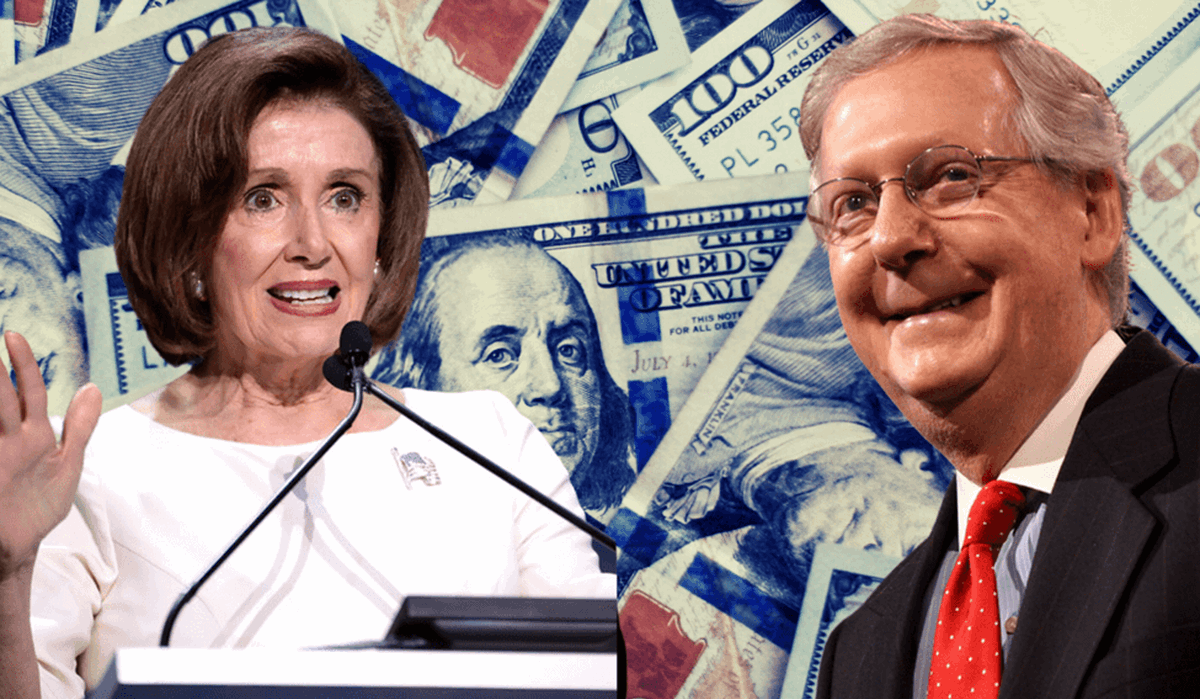The debate over expanded unemployment benefits has proven particularly fractious, given that the $2 trillion CARES Act Congress passed in March set up a broken economic system where nearly 70 percent of the unemployed can get paid more in benefits while staying home than they would make by going back to work. Yet as important as the ramifications of this distorted big government labor policy are, one largely overlooked consequence of the massive expansion of unemployment is skyrocketing fraud and abuse.
A new report from the fiscally conservative Foundation for Government Accountability exposes the stunning extent to which fraud has corrupted the hastily-crafted unemployment expansion. FGA Senior Research Fellow Josh Waters found that fraud will consume more taxpayer dollars under this expansion than the entire unemployment program paid out in 2019.
Improper #unemployment payments (fraud) from CARES Act = Total amount of unemployment benefits in 2019.
— The FGA (@TheFGA) July 23, 2020
Read the research: https://t.co/nMu9VG93JU #welfarefraud #unemployment #work pic.twitter.com/mPPVexie8O
Remember that the unemployment system was already very wasteful before COVID-19, with roughly 10 percent of payments being made in error in 2019. Waters explains that even generously assuming this fraud rate remains constant—it will likely be worse this year due to system overload and COVID-19 chaos—his calculations show a whopping $26 billion will be lost to fraud as a result of this expansion.
“As states try to respond to the historic increase in claims due to shutdowns and layoffs, the $600 bonus payments are making it very lucrative for fraudsters who know many states probably lack the staffing and resources to combat fraud while the systems are overloaded with an unprecedented amount of claims,” Waters writes.
The FGA report documents how this fraud is playing out at the state level:
- Mississippi is estimated to have paid out at least $76 million in improper payments so far, and the governor warns the state has been “attacked with false claims”
- Washington State was hit by Nigerian scammers and is estimated to have paid out at least $650 million improperly
- Oklahoma already reports 65,000 fraudulent unemployment claims and has likely paid out tens of millions improperly
- Arizona estimates that its fraud rate has doubled since the expansion and that nearly 10 percent of benefits being paid out are fraudulent
Consider the example of Brandi Hawkins, an allegedly corrupt government employee working at the Michigan Unemployment Insurance Agency who was charged on July 17 with dishing out more than $2,000,000 in fraudulent benefits. Investigators say some $200,000 in cash and many luxury items such as high-end purses were found in her home.
It’s impossible to know how many like Hawkins there are out there, but you can bet for every scammer caught many others go free. There is a simple way to stop them all, however.
A joint Secret Service investigation led to a woman being charged in a multi-million dollar unemployment insurance fraud scheme surrounding COVID-19. Read more: https://t.co/nKNp3foMNU pic.twitter.com/RGJafsinAQ
— U.S. Secret Service (@SecretService) July 21, 2020
“The most important thing Congress can do is allow the [unemployment] bonus to expire as scheduled in July,” Waters concludes. “This will dramatically reduce the incentive for fraud and the cost of fraud. It will also allow for more robust economic recovery and further reduce overall unemployment claims as individuals return to work and are freed from unemployment dependency.”
These explosive figures reveal levels of government waste that should concern any taxpayer. Yet they’re only the beginning: If the unemployment expansion is reauthorized through January 2021, as House Democrats hope to do, the numbers will only climb higher and higher. (Meanwhile, if the expanded benefits are allowed to expire, unemployed people will still be eligible for the normal state-level unemployment benefits that predated the pandemic).
The levels of fraud on display here might understandably surprise average Americans, but they won’t come as a shock to free-market economists. Fraud, incompetency, and inefficiency are a feature, not a bug, of government agencies and state-run systems.
Why? Well, in private enterprise, there exists a profit motive. A business is run by an entrepreneur whose take-home pay—and his very livelihood—depend on earning as much as possible while restraining costs. It’s a system that incentivizes efficiency. Any company or entrepreneur who fails the efficiency test is unlikely to stay in business for long, regardless of how good their product is, since customers will take their business to more frugal competitors who can offer lower prices.
In bloated government agencies, no such pressure exists.
The involuntary support of taxpayers essentially serves as a blank check for welfare state bureaucrats who may have good intentions but operate under a different incentive structure. And since government agencies usually have a total monopoly on what they do, there is no competitive catalyst to promote efficiency in their operation. Over time, the structure inevitably results in stagnation and inefficiency, laying the groundwork for fraud and waste.
As famed free-market economist Milton Friedman explained, government agencies are doomed to be less efficient than consumers shopping for themselves with their own money, or even shopping for themselves with other people’s money. “If I spend somebody else’s money on somebody else,” Friedman wrote, “I’m not concerned about how much it is, and I’m not concerned about what I get.”
This is big government in a nutshell.
Policy proposals are too often debated in abstract terms of what the plan or proposal would do assuming competent government execution. Yet that is rarely, if ever, the actual result.
“Economists are quick to speak of ‘market failure’, and rightly so, but a greater threat comes from ‘government failure,’” economic journalist Matt Ridley wrote in his book The Rational Optimist: How Prosperity Evolves.
“Because it is a monopoly, government brings inefficiency and stagnation to most things it runs; government agencies pursue the inflation of their budgets rather than the service of their customers; pressure groups form an unholy alliance with agencies to extract more money from taxpayers for their members,” Ridley continues. “Yet despite all this, most clever people still call for government to run more things and assume that if it did so, it would somehow be more perfect, more selfless, next time.”
Establishment Republicans and Democrats alike are ignoring the evidence of fraud plaguing the expanded unemployment system they created. Instead, they’re pretending more government can somehow be the answer. It will work this time!
Taxpayers like you will pay the price for the establishment’s willful ignorance.

